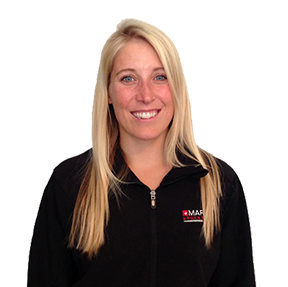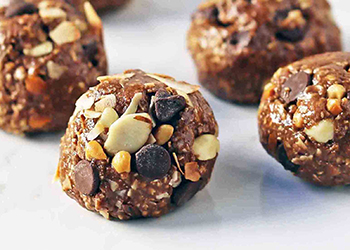
Answer- I consider a healthy diet to be a balance of fruits, veggies, grains, protein, fat and carbs. I say – everything in moderation. It’s not just about a healthy diet, it’s about developing healthy eating habits. You want to eat a variety of healthy foods. If you diet, day after day, consists of the same half dozen foods, you could fall short on some key nutrients your body needs. You also want to focus on high-fiber foods such as avocados, almonds, broccoli and lentils. Foods containing high fiber should supply about 20-35 grams of fiber a day, depending on your calorie needs. You do want to eat lots of produce. Remember to buy organic if you can to limit your exposure to any pesticides or toxic substances. Limit sugary foods, beverages and refined grains, which includes soda, candy, white bread, regular pasta and many snack and baked foods. A high intake of added sugar increases inflammation, risk of diabetes and insulin resistance in the body. And remember to drink alcohol in moderation if you do. Try and limit one drink a day for women and two for men. While alcohol has potential heart benefits, it poses a variety of health risks, especially in excess amounts.
Question- What are unhealthy ingredients on labels to avoid?
Answer- As a rule of thumb, I always try and eat things that don’t have a lot of ingredients in them. If I run my eye by an ingredient list and see a dozen names I can’t even pronounce, chances are it’s not good for you. Try aiming for foods that are minimally processed. Some ingredients to avoid and watch out for are: High-Fructose Corn Syrup, MSG, Partially Hydrogenated Oil, Sodium Nitrate, BHA, and BHT.
Question- What is MSG, and should I avoid it?
Answer- MSG or Monosodium Glutamate is the sodium salt of glutamic acid and is one of the most abundant naturally occurring non-essential amino acids. It’s basically a flavor enhancer commonly added to Chinese food, canned vegetables, soups and processed meats. Just like salt and sugar, MSG exists in nature, it tastes good at normal levels, but large amounts at high concentrations can do harm to you. MSG has been known to cause headaches and ast
Question- Can you please recommend healthy snacks?
Answer- I do recommend having some sort of snacks throughout the day. I tend to eat about 4-5 smaller meals a day and snacks are a big part of my diet. What my go-to snacks are raw almonds or any type of raw nuts, dried fruit such as raisins (golden raisins), apricots or crunch banana chips. Sometimes I’ll cut a few apples slices and put nut butter on them or some low-sodium beef or turkey jerky. I do have a recipe I like to make where I can make my own energy balls. They’re easy to make and contain almond butter, crushed dates, walnuts, cocoa and protein powder. I’ll sprinkle and roll them in coca nibs and coconut flakes. You can easily google an energy ball recipe, I highly recommend it!
Question- Is salt really that bad for you?
Answer- Again, everything in moderation. If you eat too much salt, the extra water stored in your body raises your blood pressure. So, the more salt you eat, the higher your blood pressure will be and with higher blood pressure comes to greater strain on your heart, arteries, kidneys and brain. I tend to choose foods that say ‘low-sodium’ or I check the nutrition label to see how much salt content is in what I want to eat. Some foods claim to be ‘low-sodium’ but then turn out to have a ton of salt! Though we do need salt/sodium to survive as our bodies rely on sodium for muscle contractions, nerve transmissions and the control systems for balancing body fluids, together with other electrolytes like potassium, you don’t want to have too much salt. Excessive sodium intake is one of the major factors contributing to stroke and heat attacks.
Question- If I want to get healthy, what are the basic first steps?
Answer- Start small and work your way up. You don’t suddenly want to cut salt, fat and carbs out of your diet like some people do. It’s not a long-term solution. Still reward yourself with some fat or sugar such as dark chocolate, but just don’t be excessive. What I did is simply substitute things. Instead of this type of cereal, I’ll choose a healthier option. Instead of whole milk, choose coconut or almond milk. Throw some chia seeds in your yogurt or add blueberries or kale to your smoothie. Remember to do what is going to work for you. There are tons of diets and fabs out there, but if you stick to reading nutrition labels and eating more whole foods than processed foods, that is a great start.
For many people eating healthy is a challenge, and to some a source of dread. But eating healthy should bring you joy and a centerpiece to your life. Like the things you eat and enjoy cooking and making meals with friends and family. Once you create good habits, then eating healthy won’t be a chore, it will become a lifestyle and something that’s easy to do.
The information provided is for general interest only and should not be misconstrued as a diagnosis, prognosis or treatment recommendation. This information does not in any way constitute the practice of medicine, or any other health care profession. Readers are directed to consult their health care provider regarding their specific health situation. Marque Medical is not liable for any action taken by a reader based upon this information.
